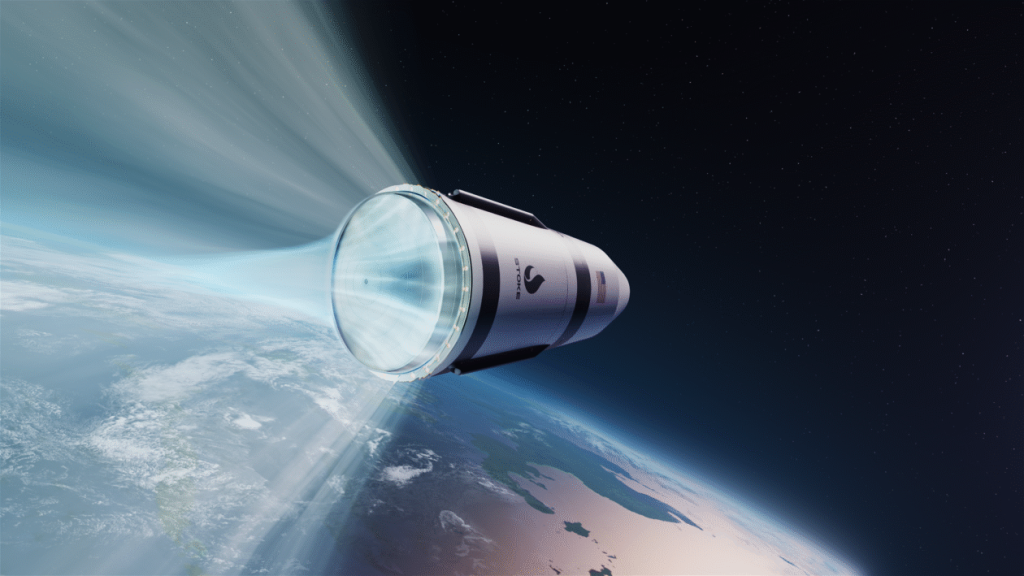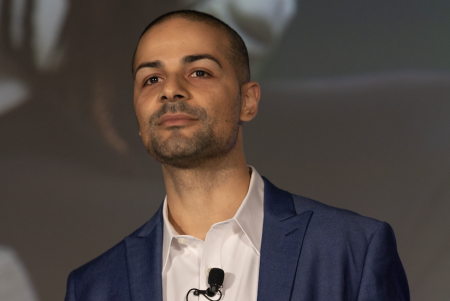Stoke Space Secures Massive Funding to Revolutionize Rocket Reusability
In a significant development for the commercial space industry, Kent, Washington-based Stoke Space Technologies has announced an extraordinary funding milestone, raising $510 million in a Series D round led by Thomas Tull’s US Innovative Technology Fund. This financing, combined with a $100 million debt facility from Silicon Valley Bank, has catapulted the company’s total capital raised to an impressive $990 million. The timing couldn’t be more strategic as Stoke Space prepares for the first launch of its fully reusable Nova rocket in 2026. This medium-lift launch vehicle promises to reshape the economics of space access by achieving what few have attempted: complete reusability of both the first and second stages of an orbital rocket system. CEO Andy Lapsa, who co-founded the company with fellow Blue Origin veteran Tom Feldman in 2019, emphasized that this substantial funding provides the runway needed to complete Nova’s development and demonstrate its capabilities through initial flights from their renovated Launch Complex 14 at Cape Canaveral Space Force Station—a launchpad with historical significance as the site of John Glenn’s pioneering orbital mission.
What makes Stoke Space’s approach particularly revolutionary is their focus on solving one of rocketry’s most challenging problems: second-stage reusability. While SpaceX has successfully pioneered reusing first-stage boosters with its Falcon 9 and Falcon Heavy rockets, and Blue Origin has designed its New Glenn rocket with a reusable booster, the recovery and reuse of an orbital second stage remains largely unachieved in commercial spaceflight. Stoke Space has developed innovative technologies to tackle this challenge, including a liquid-cooled heat shield that could be the key to bringing second stages safely back to Earth for refurbishment and relaunch. This capability would dramatically reduce launch costs, potentially opening new possibilities for commercial and scientific missions that were previously cost-prohibitive. The Nova rocket is being designed to carry between two and twenty metric tons to orbit, positioning it strategically in the medium-lift market segment where Stoke believes there is significant unmet demand between smaller launchers and heavy-lift vehicles like SpaceX’s Starship or Blue Origin’s New Glenn.
Thomas Tull, whose US Innovative Technology Fund led the massive investment round, framed the funding decision in terms of both commercial opportunity and national strategic importance. “Launch capacity is now a defining factor in the U.S.’s ability to compete and lead in the space economy,” Tull stated in the announcement. “Stoke’s pioneering approach to reusable launch systems directly advances our national security and commercial access to orbit.” This sentiment reflects growing recognition among investors and policymakers that affordable, reliable access to space has implications far beyond commercial applications, touching on national security, technological leadership, and economic competitiveness in the rapidly expanding space sector. The impressive investor roster for this funding round includes a mix of venture capital firms and strategic investors: Washington Harbour Partners LP, General Innovation Capital Partners, 776, Breakthrough Energy Ventures (backed by Bill Gates), Glade Brook Capital, Industrious Ventures, NFX, Sparta Group, Toyota Ventures, and Woven Capital all participated, demonstrating broad confidence in Stoke’s vision and execution capabilities.
The substantial new capital will enable Stoke Space to accelerate several critical aspects of its business plan simultaneously. The company intends to expand production capacity for the Nova launch vehicle, complete the refurbishment of Launch Complex 14 in Florida, strengthen its supply chain relationships, further develop its proprietary Boltline software for project management, and build out the infrastructure necessary to support high-frequency launch operations. This comprehensive approach demonstrates Stoke’s understanding that creating a successful launch business requires excellence not only in rocket design but also in manufacturing, operations, and logistics systems. The company has strategically positioned its physical assets with a 168,000-square-foot headquarters in Kent, Washington—located near Blue Origin’s facilities—and maintains a 75-acre test facility in Moses Lake, Washington, providing ample space for rocket testing away from populated areas.
Despite not having yet launched a rocket to orbit, Stoke Space has already secured significant validation from both government and commercial customers. The U.S. Space Force added the company to its list of providers for national security launches earlier this year—a remarkable vote of confidence for a pre-launch company and a testament to the Space Force’s interest in fostering new launch capabilities. According to Lapsa, the company also has “a substantial manifest of contracted commercial launches,” suggesting that potential customers are eager to secure capacity on Nova rockets once they become operational. This early market traction indicates that Stoke’s focus on the medium-lift segment is addressing a genuine market need, potentially filling a capability gap between smaller rockets like Rocket Lab’s Electron and the heavy-lift vehicles being developed by industry giants.
The space launch landscape has evolved dramatically over the past decade, with reusability becoming increasingly central to competitive strategy. Stoke Space’s approach—building a fully reusable system from the ground up rather than incrementally modifying expendable designs—represents a bold bet on the future of space access. If successful, Nova could help establish a new paradigm where orbital launches become routine and affordable enough to enable ambitious new applications in communications, Earth observation, space manufacturing, and beyond. With nearly a billion dollars in funding, experienced leadership from the aerospace industry, and a clear technical vision centered on full reusability, Stoke Space has positioned itself as a serious contender in the next generation of launch providers. As the company works toward its first launch in 2026, the space industry will be watching closely to see if this Seattle-area startup can deliver on its promise to make space more accessible through innovative engineering and operational excellence.















